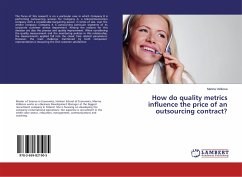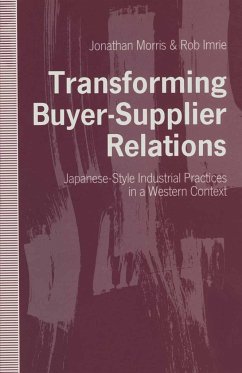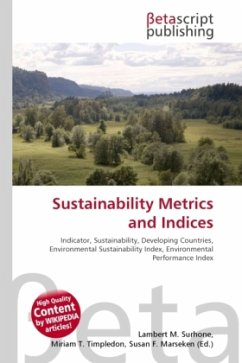
Unleashing the Power of Supplier Performance Metrics
easier said than done
Versandkostenfrei!
Versandfertig in 6-10 Tagen
32,99 €
inkl. MwSt.

PAYBACK Punkte
16 °P sammeln!
This is a master thesis investigating how companiesevaluate suppliers performance when purchasinggoods. Which metrics are used and how they aredefined? What is the process for gathering, storingand working with supplier metrics data? Thepurchasing function of companies has becomeincreasingly important and this work highlights andanalyzes some difficulties that arise when measuringsuppliers: both internally in the purchasingorganization and externally with regards to thesuppliers. Data has been gathered from interviewswith 25 persons working in purchasing and qualitymanagement, mostly in indust...
This is a master thesis investigating how companies
evaluate suppliers performance when purchasing
goods. Which metrics are used and how they are
defined? What is the process for gathering, storing
and working with supplier metrics data? The
purchasing function of companies has become
increasingly important and this work highlights and
analyzes some difficulties that arise when measuring
suppliers: both internally in the purchasing
organization and externally with regards to the
suppliers. Data has been gathered from interviews
with 25 persons working in purchasing and quality
management, mostly in industrial companies. The data
is analyzed within a theoretical framework. An
interesting finding from a theory analysis is the
lack of theory explaining in detail how to measure:
this theory gap correlates with the difficulties
encountered by companies in their practical work. A
main conclusion of the study is that the complexity
of the field of supplier performance metrics is
larger than what is hinted or even mentioned by most
academic literature
evaluate suppliers performance when purchasing
goods. Which metrics are used and how they are
defined? What is the process for gathering, storing
and working with supplier metrics data? The
purchasing function of companies has become
increasingly important and this work highlights and
analyzes some difficulties that arise when measuring
suppliers: both internally in the purchasing
organization and externally with regards to the
suppliers. Data has been gathered from interviews
with 25 persons working in purchasing and quality
management, mostly in industrial companies. The data
is analyzed within a theoretical framework. An
interesting finding from a theory analysis is the
lack of theory explaining in detail how to measure:
this theory gap correlates with the difficulties
encountered by companies in their practical work. A
main conclusion of the study is that the complexity
of the field of supplier performance metrics is
larger than what is hinted or even mentioned by most
academic literature












